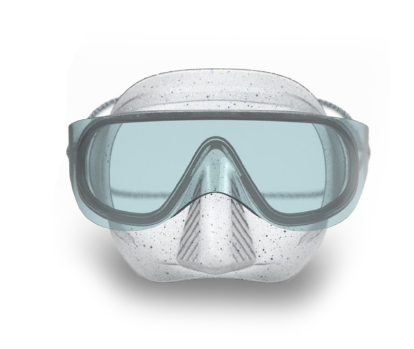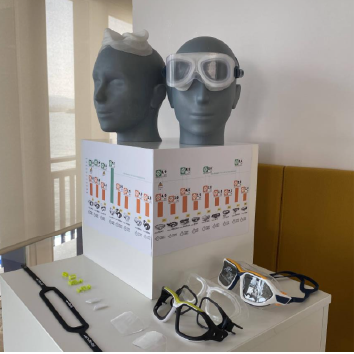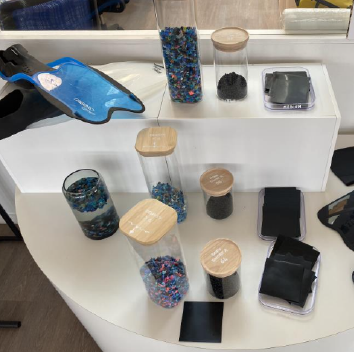RECYCLABILITY AND REPARABILITY
FOR CIRCULARITY. ENVIRONMENTAL REDUCTIONS FOR PRODUCTS IN THE AQUATIC ECOSYSTEM
Student: Cléa Renard (ESTIA)
HEI’s Tutor:Damien Saumureau (ESTIA)
Company’s tutor: Raphael Vis (Décathlon)
Residency duration: 2 months
The possibility to measure and calculate products’ recyclability and reparability indices is crucial for companies to review and improve the decision-making process toward more sustainable choices. Following tools and methods to assess the recyclability and reparability index of products, the first period of the residency was focused on calculating the environmental gains of several company’s products realised with recycled materials (from a revalorisation) against the ones made of virgin materials. The recyclability of different models of swimming goggles, diving, and swimming masks was also assessed by looking at their components and assembly. In parallel, the student contributed to the development of the company’s ongoing project “2 in 1 mask”. Thanks to the work above, it was possible to assess the CO2 environmental gain of several products, linking the resulting percentage to the specific quantity and typology of material used. In addition to this, the research on disassembly, dismantling, or reassembly of many of the company’s glasses and googles demonstrates the impossibility of performing this process manually, therefore leading to the need to improve research on automated post-demonstrations.




